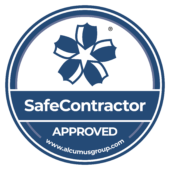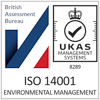Cladding provides a uniform and stylish facade for buildings. It has been used for this purpose for many years, and since it first appeared on the market, the durability of the materials used has increased tenfold.
However, in order to ensure that cladding surfaces last as long as they're supposed to, they need to be regularly maintained, and a key part of that maintenance is cladding cleaning which is why our cladding cleaning services are beneficial to you.
Cladding cleaning is a long and difficult process sometimes, and since it involves cleaning the entirety of the outside of a building, it can often be a risky job.
If you need to clean your cladding, it's worth considering hiring a professional team like EMS Powerwash to help you with all of your cladding cleaning needs.
No hassle, no obligation—just a fair price for top-quality cleaning.
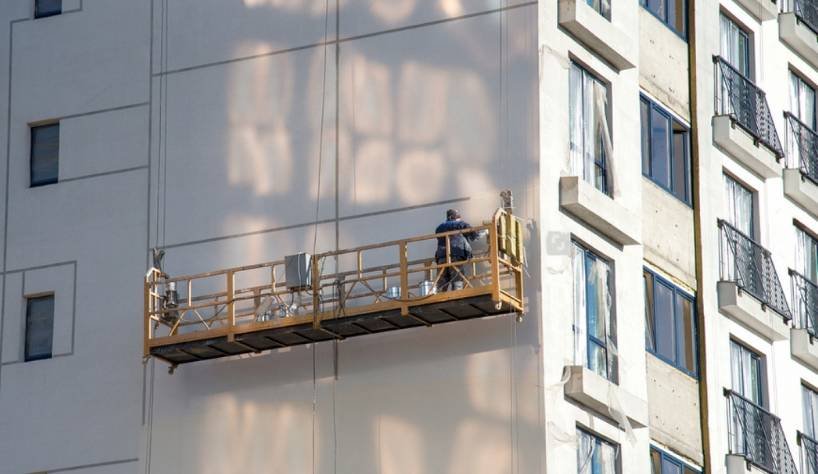
A lot of property owners don't think twice about cleaning their cladding. After all, if cladding is designed to be outside, why should you bother with cladding cleaning services - surely the materials are specially designed to withstand the outdoors, right?
Unfortunately, that's not the case. Cladding materials are designed to withstand the elements, but they still get dirty and they are still susceptible to damage if left uncared for. Here are all the reasons that you should make sure you're putting the effort into cleaning your cladding surfaces on a regular basis.
Heavy winds, storms, snow, ice and even sunshine can cause long-term damage to cladding.
Depending on the material, changes in temperature and moisture levels can cause things like the freeze-thaw cycle, wherein the material absorbs moisture which freezes, expanding and causing structural issues within the substrate or the cladding material. High winds can carry with them pollutants, and rain can dirty the surface, leaving behind unsightly marks.
In addition to weathering, cladding is also prone to organic growth. This happens when moisture creates the right environment on the surface of the cladding for things like mould, algae, moss and lichens, all of which can look unsightly and are capable of causing damage in the long run. Moss can prevent materials from being able to expel water properly, leading to mould and structural damp issues, and can be hard to remove, even with aggressive techniques like pressure washing, as the spores often remain behind.
There are also airborne pollutants. These are carried on the winds and in the air and when they meet the surface of the cladding, they eat at the material. This can cause scarring and in some cases it can even create structural weak spots.
But, cladding cleaning helps to reduce these issues and risks. By regularly removing spores and debris from the surface and wiping away any pollutants before they are able to cause damage, you can protect your cladding and extend its lifespan.
At EMS Powerwash, we offer expert cleaning services for homes and businesses across the East Midlands. Our team uses the best tools and techniques to make your property look brand new. No matter the job, we deliver reliable, high-quality results every time.
There are a few different techniques when it comes to cladding cleaning, each suited to different properties and different cladding materials.
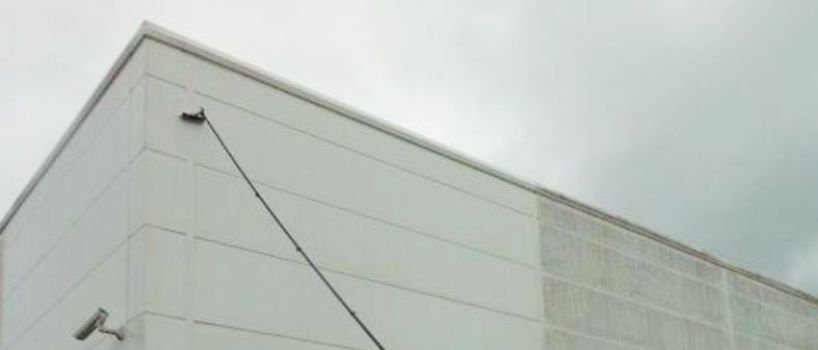
Often, professionals will use the water-fed pole technique. This is sometimes called the 'reach and wash' system. It involves using water-fed poles that are telescopic, meaning that there is no need for ladders or lifts, lowering the risk of slips and falls dramatically. The use of long, water-fed poles also ensures effective cleaning of high-level cladding in a safe and easy way.
The water-fed poles use purified water to properly dissolve dirt and grime. The lack of chemicals used in this process makes it a popular choice as it is more environmentally friendly and is commonly used on cladding materials that may suffer from discoloration if chemicals were to be used on their surface.

There are a huge number of cladding materials and each of them requires slightly different cleaning services because the best cleaning process for each one is a little different. You can get:
Each of these looks, acts and requires different things. They serve different purposes, and no one material will provide the same cladding experience.
Timber cladding is good and low maintenance, and is super budget-friendly. It offers a lot of freedom, as it can be installed vertically, diagonally or horizontally, and is often chosen because wooden boards create a natural-looking external cladding system.
However, because it is a natural material, it is also a porous material and can swell, shrink, warp and collect humidity. This makes it hard to clean. If you need to clean wooden cladding it is best to hire professionals like EMS Powerwash to get rid of algae and other dirty marks on the surface of your wood.
Cleaning cladding is one way of protecting your cladding, if you are sure to regularly clean the surfaces you will limit the chances of long-term damage. But aside from cleaning work, you can also invest in coating and sealing your cladding.
Once you've had your cladding cleaned, simply coat your clean cladding in a protective layer that will protect your cladding from corrosion, rotting, and natural growth. This will help to extend the time periods between your cladding cleaning services, and your building will look perfect for much longer.
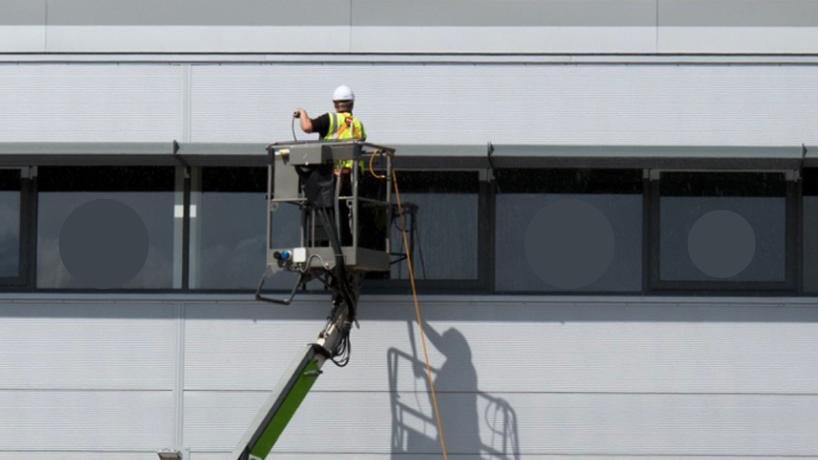
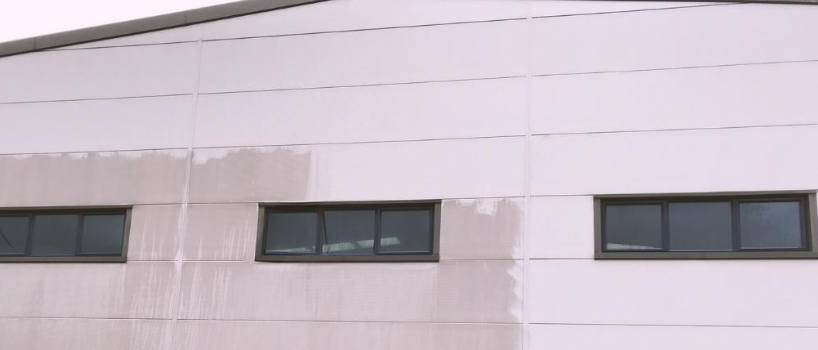
It is hard to determine how much the cladding cleaning services you need will cost, as it depends on a number of factors:
If you've got a glass cladding system on the outside of your building, it is easier to clean than if you were to have aluminium exterior cladding. So removing dirt from the former would incur less labour costs. Alternatively, sensitive cladding materials like aluminium will need a gentler process, which usually takes longer and therefore costs more.
If you need cladding cleaning services, contact EMS Powerwash today for a free quote. Our team is well-known for delivering very high-standard cleaning methods time and time again, and whether you need a business exterior cleaning, or your home is covered in algae and moss - we'll restore the appearance of the property in no time at all.
Our customers love our work, and you can find out why! Just contact us today to discuss our many different kinds of cladding cleaning services.
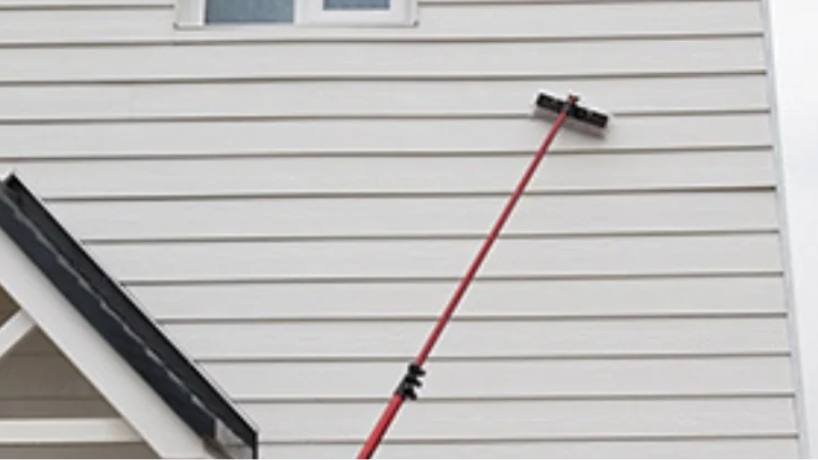
Cladding cleaning involves the removal of dirt, grime, and contaminants from the exterior surfaces of a building's cladding. This helps maintain its appearance and structural integrity.


